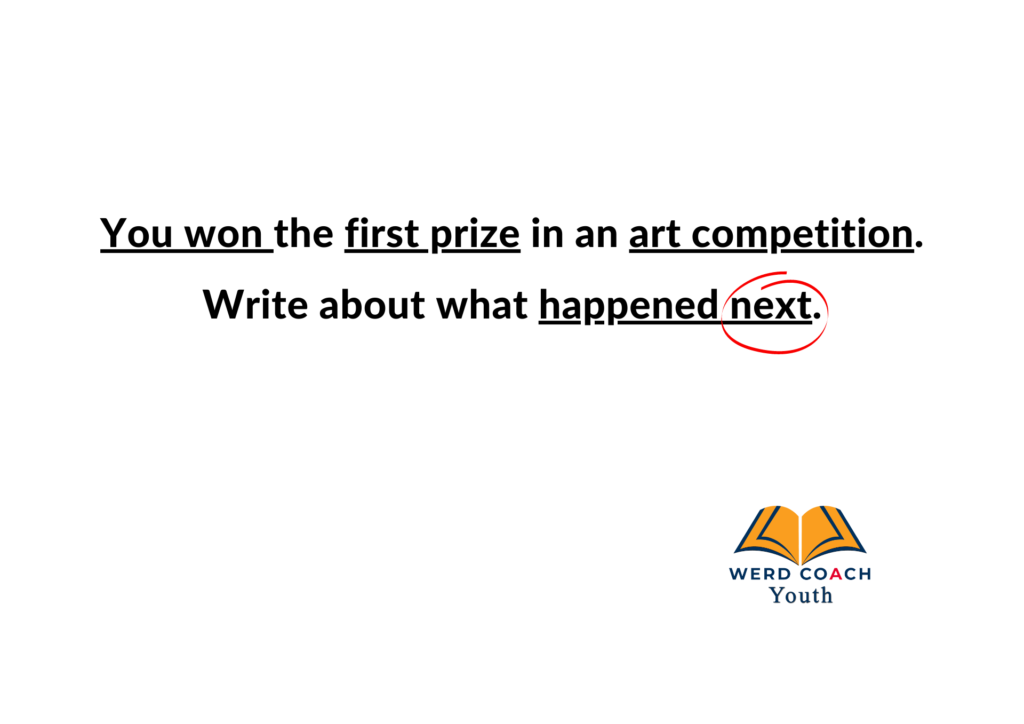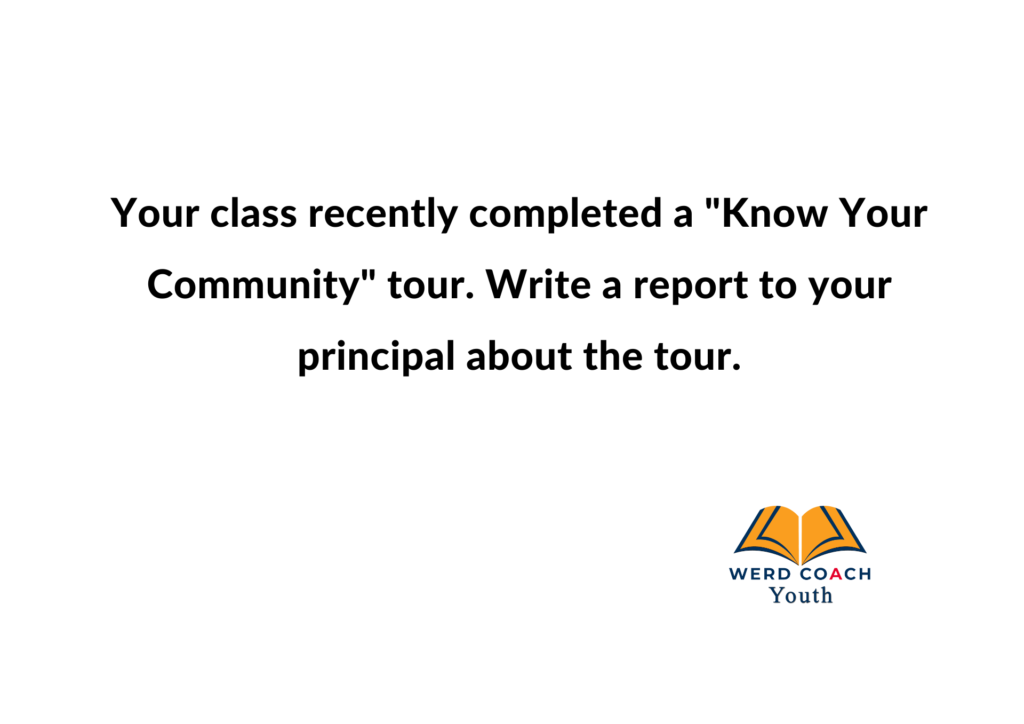Analysing prompts so you’ll know what to write about.
Let’s look at the following sentences carefully.
– You won the first prize in an art competition. Write about what happened.
– You won the first prize in an art competition. Write about what happened next.
The first thing to do is to look at the content words.
Content words give information and are usually nouns and verbs. They tell us who and what. So, we know “you” “won” “prize” “competition” “write” and “happened”.
From that we can guess what we should write about – you winning a prize in a competition.
But there are other words, which we often call function words, and these add details. These words are the other parts of speech like adjectives, adverbs, and conjunctions, and they help explain what part of the content words need to be focused on. So now we know it’s not just “a” prize, but the “first” prize. We also know what type of competition it is, it’s an “art” competition.

Both sentences relate to winning first prize in an art competition, but what is required for each story is different. Just the addition of a single word “next” changes where you have to focus.
The first one asks about what happened, which suggests you should write about the events leading up to winning the prize and about the experience of winning. The second one asks about what happened next, which suggests you should write about the experience of winning and the results or consequences of winning, what happened after winning.
So it’s not enough to say look at the content words or look at the function words. When analysing a prompt you should look at all the words and how they relate to each other to create meaning.
Best practice is to underline words and phrases that give information, and circle any key word that makes a significant impact on what you should focus on.
Spending 5 minutes on analysing the prompt is worth the time. Practice underlining key words and circling important focus words.

Sometimes a prompt may give you a general idea but not any specific details to focus on. For example, look at the following prompt:
Your class recently completed a “Know Your Community” tour. Write a report to your principal about the tour.
The main information given in this prompt is that the tour is around your community. Writers are not told what places were visited or anything else.
Students will have to rely on their understanding of their community or draw on what they think would be interesting in any community.
Note that the prompt is about community and not country, so the distance travelled and scope of what is shown will be on a smaller scale.
Here’s a suggestion on how to tackle this.
First, select a community to write about or create a fictional community. Then, list two or three interesting places in the community that will probably be on a tour. Tours are about fascinating places like factories and manufacturing plants, old churches or other buildings with historical significance, and monuments or landmarks.
It’s also important to note that this report is to be presented to a primary school principal, so ask yourself why your principal would want to know this information. I would wager three reasons:
1. To know how students and teachers are behaving on the tours.
2. To determine what students are learning.
3. To assess how teachers are integrating the tour into their teaching.
In order to respond effectively, then, students need select interesting stops for their tour, and keep in mind that a principal is looking for more than just the information given on the tour.
A principal would be looking at behaviour of students and teachers, as well as the outcome of a tour. Were students given follow-up assignments? Was the school represented well? Are students learning anything or is this just for fun? These are questions a principal will likely ask.
So, in analysing a prompt that doesn’t give too much details, think about the purpose of the story or report while trying to decide what details to include. It might help to list a couple questions that the person reading the report would ask. Then, write the report to answer those questions.
#CreativeWritingforPrimary#UnderstandingthePrompt#WhatToWrite

